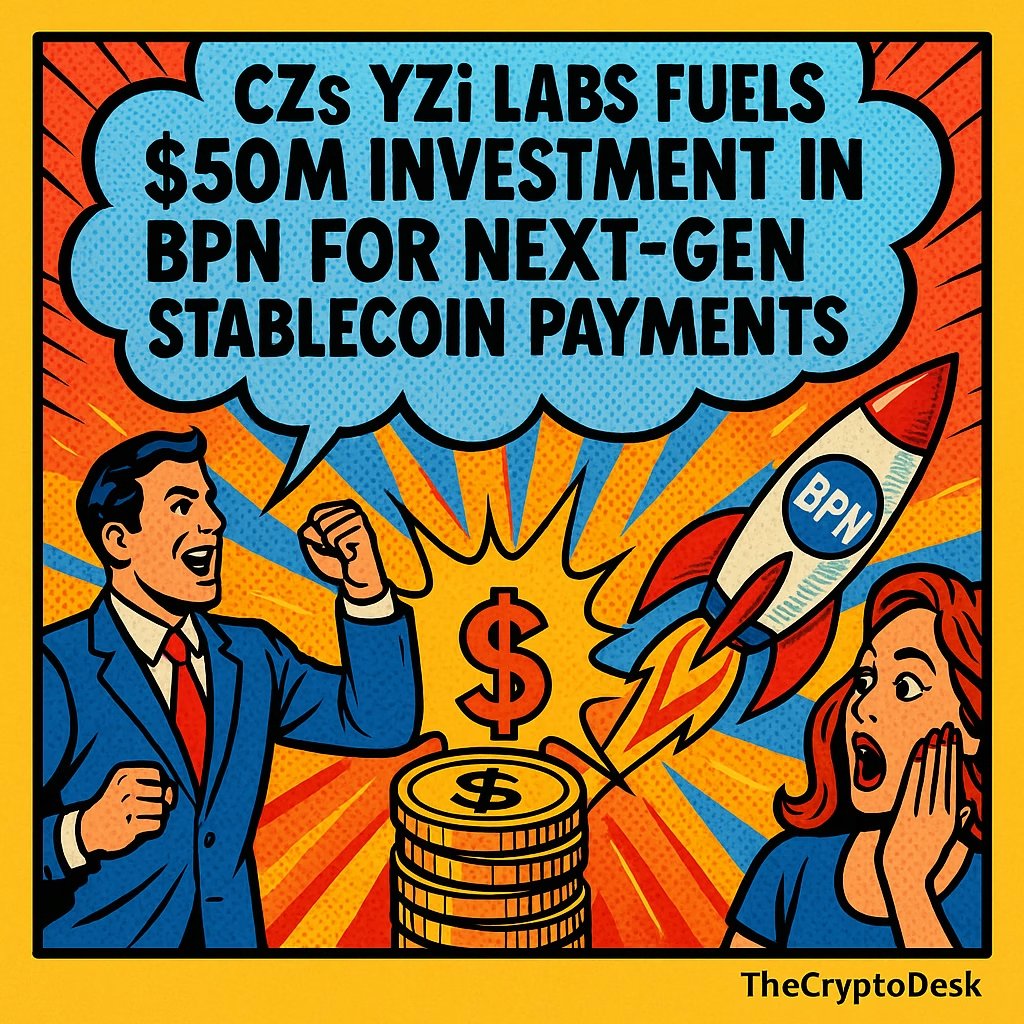In a bold move that casts a spotlight on the future of global finance, YZi Labs—formerly known as Binance Labs—has made headlines with its impressive $50 million seed investment in Better Payment Network (BPN). This innovative startup is setting out to revolutionize cross-border payments by harnessing the power of stablecoins, and its vision is nothing short of ambitious.
So, what does this funding mean for the world of payments? First off, it represents one of the most substantial early-stage funding rounds we’ve seen this year within the payments sector, reflecting a substantial endorsement of both stablecoin technology and the hybrid model known as CeDeFi—merging centralized and decentralized finance—to aid emerging markets.
In an exciting announcement, BPN revealed plans to utilize this fresh capital to create on-chain liquidity pools and advanced market-making systems tailored for seamless stablecoin transactions. Built on the robust BNB Chain, BPN operates at the intersection of traditional finance and DeFi automation. This integration allows for the rapid minting, swapping, and settlement of fiat-backed stablecoins, covering various jurisdictions. Imagine cutting the time it usually takes for international payments from several days down to just hours—BPN aims to make that a reality.
Traditional fintech companies often face significant hindrances due to their reliance on pre-funding practices, where they have to maintain large sums in local accounts to ensure liquidity. With BPN’s innovative approach, this inefficiency is tackled by enabling real-time issuance of stablecoins, effectively liberating trapped capital. The potential savings are astounding; costs could drop from an average of 2% to a mere 0.3%, paving the way for a more economical, swift, and inclusive payment ecosystem.
Rica Fu, the visionary founder of BPN, articulated the startup’s mission succinctly, remarking that its “multi-stablecoin liquidity model offers a more inclusive and efficient alternative to USD-centric payment systems.” This is a critical nuance—decentralizing control over payment entities can empower regions previously marginalized by existing financial infrastructure.
why better payment network (BPN)?– a faster, cheaper, and more scalable end-to-end solution built natively on @BNBCHAIN – founding team with both traditional payments and web3 expertise– real-world impact 👏 https://t.co/AavRxKN22J— Dana @YZi Labs (@DanaBuidl) October 16, 2025
As it stands, BPN is already facilitating transactions across pivotal corridors—Brazil (BBRL), Nigeria (cNGN), Mexico (MEXAS), and the Eurozone (EURI)—thus enabling enterprises and licensed payment institutions to execute compliant and KYC-aligned transfers effectively. But this is just the beginning. By the end of the year, BPN is poised to roll out a decentralized foreign exchange (DeFi FX) market. This pioneering move will support as many as 20 regional stablecoins, tailoring its offerings to areas in Latin America, Africa, and Asia. Users will be able to swap stablecoins effortlessly, engage in liquidity farming, and earn yields without requiring intermediaries.
Commenting on the vast potential of BPN, Dana H., an Investment Partner at YZi Labs, declared it a “true game-changer for cross-border payments,” emphasizing the startup’s capacity for instant settlement, substantial cost savings, and impressive scalability that could outpace not only traditional Web2 players but also fragmented Web3 solutions.
On a different note within the cryptocurrency sphere, recent developments have suggested heightened discussions at the White House regarding a possible presidential pardon for Binance’s founder, Changpeng “CZ” Zhao. This speculation stems from reports by the New York Post that suggest President Trump is leaning towards favoring a pardon, despite mixed sentiments within his advisory team about its implications given the president’s ties to the crypto world.
Zhao, who pleaded guilty to failing to maintain adequate anti-money laundering controls at Binance, led to his resignation as CEO in late 2023. The discussions around a pardon emerge nearly a year after Zhao expressed his willingness for such an outcome, especially after President Biden’s controversial pardon of his son, Hunter Biden, in 2024. However, the whispers of a presidential pardon have been met with scrutiny, particularly from Senator Elizabeth Warren, who has raised alarms regarding the potential implications for the integrity of our justice system.
As we move through a rapidly evolving landscape, the stakes are high. With pioneering endeavors like BPN aiming to redefine payment structures and conversations around regulatory measures continuing to brew, the cryptocurrency sector remains pivotal in shaping the future of global finance. Will these innovations bring about the change we need in payment systems? Only time will tell, but one thing is certain: the future of finance is being rewritten right now.
